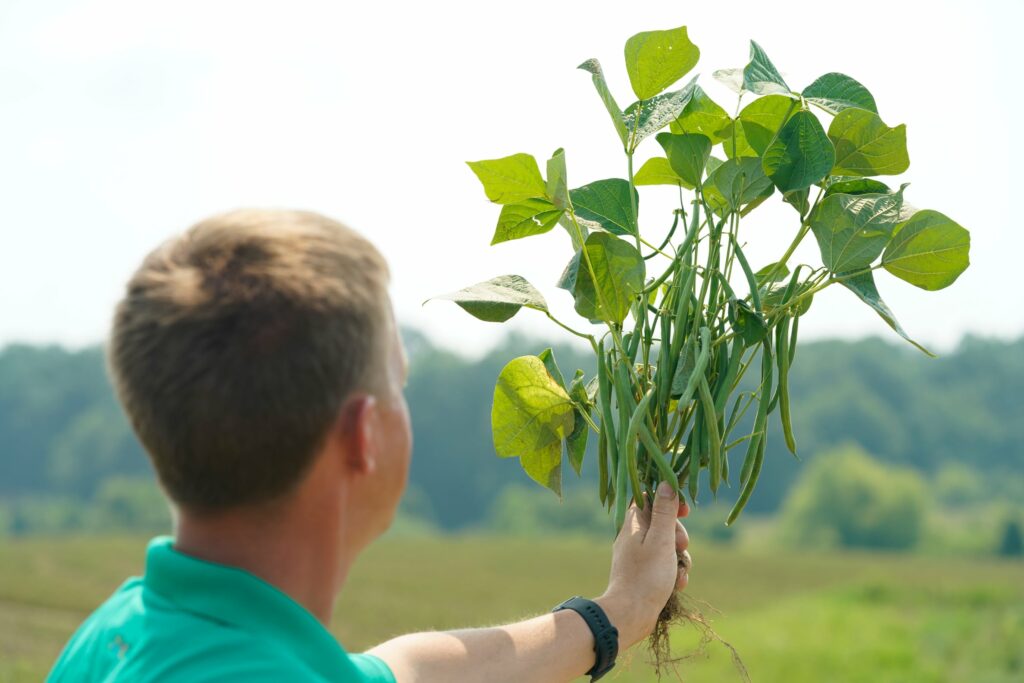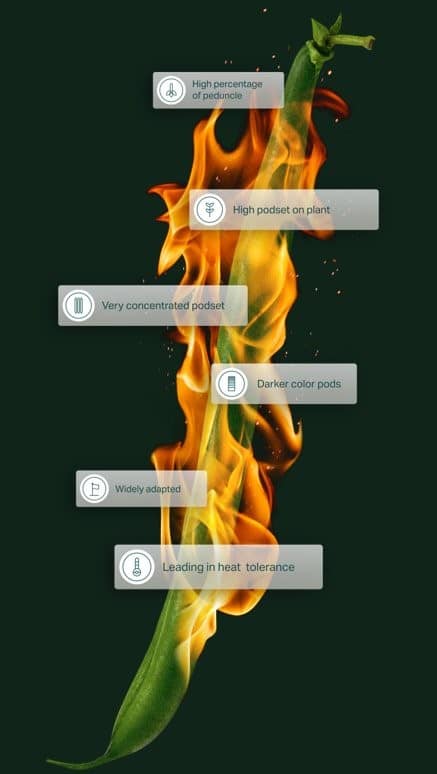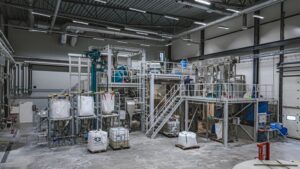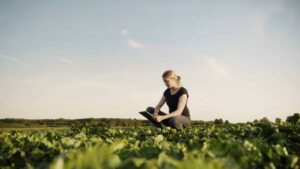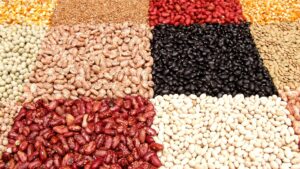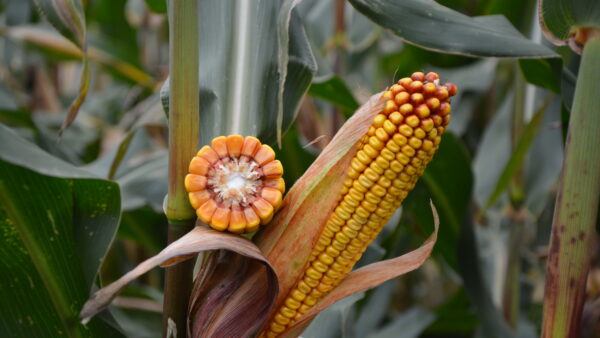Due to climate change, plants are exposed to greater stress factors: Heat, drought, strong winds or floods threaten farmers’ harvests and the food supply of many people. Plants that can withstand these stresses well and produce reliable yields will be more important than ever in the future.
In this context, KWS sees tremendous potential, amongst other things, in the breeding of high-quality vegetable plants which are increasingly in demand as a source of protein, especially as a meat alternative. Legumes are one family of plants with this high capability: Their ability to withstand hot, arid conditions enables them to shrug off extreme weather. They are also a true friend of farmers developing concepts for resilient crops thanks to their ability to improve soil and resupply it by fixing nitrogen. In the EU for example, the amount of land used for growing legumes rose by about 3% to 2.5 million hectares for the 2021 harvest.
Green bean varieties for fresh or processed consumption is the result of years of breeding research, tailored specifically for the climate conditions in the largest production regions in Europe, Africa and the US. Year-round availability of local grown beans has been put under pressure in the last decade, particularly due to high temperatures, which causes bean pod setting to fail and consequently dramatacilly reducing yield. Heat tolerant bean varieties enable growers and packers to improve their predictablility and their ability to consistent supply year-round grocery store programs.
Faba beans: Little Input, High Nutrient Cycling
Faba beans are a legume that can serve not only as a catch crop for farmers, but also as an economically competitive alternative to other primary crops. Thanks to a symbiosis with Rhizobiaceae, beans can draw nitrogen from the air — a quality that reduces costly input in the form of nitrogen fertilization. They fix nitrogen in the soil, creating a reservoir of nutrients that subsequent plants can tap. This quality makes faba beans a crop that facilitates a high preciding crop value. They also improve the soil structure with their deep system of roots. As part of cereal-rich crop rotation, faba beans disrupt infection chains and help prevent pathogens and weeds from developing resistance. And not to be forgotten: Faba beans increase the biodiversity of agricultural landscapes.
Magma Collection — Beat The Heat!
To further increase the strengths of protein plants, which are then used as vegetables, KWS develops high-performance green bean varieties that have been modified to meet all sorts of regional conditions. The Magma Collection represents a very special breeding success — a development from Pop Vriend Seeds, a member of the KWS Group. The Magma Collection comprises varieties tailored for cultivation at the East Coast of the United States, that are specifically bred to handle extreme heat conditions like they occur in important growing regions like Georgia, North-Florida and Texas. Besides withstanding seasonal stressors, and the pressure from insects and diseases that come along with climbing temperatures, the Magma Collection varieties provide end-use benefits grower, packers and consumers seek. Consumers are asking for more sustainability within the grocery store and they want more flexibility on when they can eat them. For example, if they don’t finish their bag of green beans in one meal, it needs to maintain quality in the refrigirator. That is why the varieties are researched on consumer traits like shelf-life and taste as well. Once you add the rising costs for fertilizer, pesticides and other farming resources to the mix, you reach one conclusion: Plant breeding is and has to be a real driver in facing agricultural challenges.
The Magma Collection is now also trialed and offered in other parts of the world where customers are looking for the same kind of product and farmers are facing similar growing challenges as on the US east coast. This product development is a good example of how innovative plant breeding, sustainable farming and improved marketing opportunities can successfully work together.


